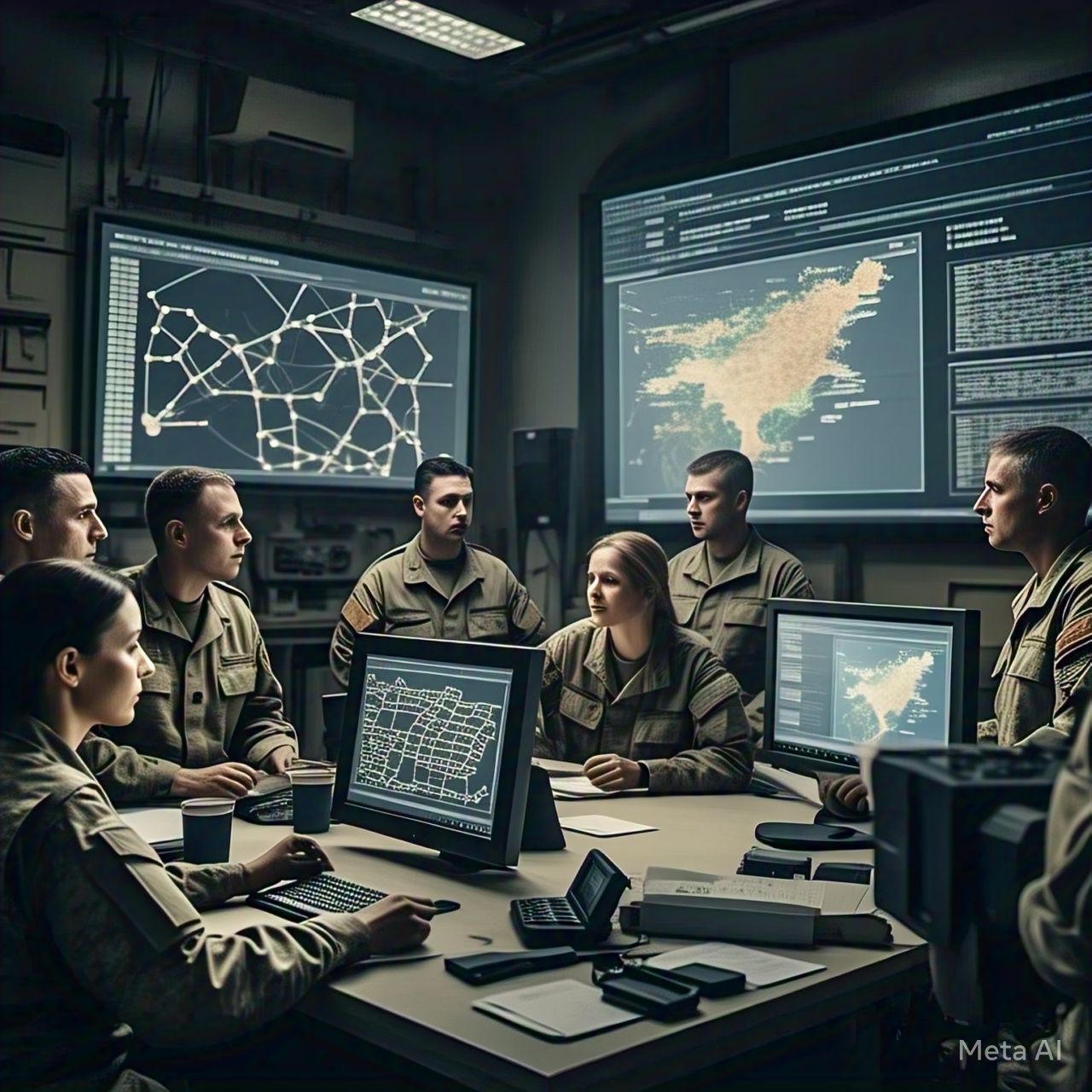Table of Contents
- Introduction
- The Role of AI in Military Logistics
- Key Applications of AI in Military Supply Chains
- Predictive Maintenance
- Automated Inventory Management
- AI-Driven Route Optimization
- Autonomous Vehicles for Logistics Support
- Intelligent Warehousing
- Challenges of Implementing AI in Military Logistics
- The Future of AI in Military Supply Chains
- Conclusion
- FAQs
Introduction
The integration of Artificial Intelligence (AI) into military logistics has been a game-changer in optimizing supply chains, reducing human error, and ensuring operational efficiency. Logistics plays a vital role in military operations, ensuring that troops receive necessary supplies such as food, fuel, ammunition, and medical support in a timely and cost-effective manner. AI enhances these operations by automating processes, predicting supply chain disruptions, and streamlining logistics in real-time.
In this article, we will explore how AI is revolutionizing military logistics by improving efficiency, enhancing predictive intelligence, and ensuring seamless supply chain operations.
How AI is Transforming Military Logistics
| AI Application | Function |
|---|---|
| Predictive Analytics | Forecasts supply chain needs and prevents shortages |
| Automated Inventory Management | Tracks and replenishes military supplies efficiently |
| Autonomous Drones & Vehicles | Reduces response time and improves logistics automation |
| AI-Powered Route Optimization | Finds the fastest and safest supply routes |
| Blockchain for Logistics Security | Ensures the integrity of supply chain data |
1. Predictive Maintenance
One of the most significant ways AI is improving military logistics is through predictive maintenance. AI-driven systems analyze data from sensors embedded in military vehicles, aircraft, and other equipment to predict potential failures before they happen. This helps reduce unexpected downtime and improves operational readiness.
For example, the U.S. Army employs machine learning models that predict when tanks and helicopters may require maintenance. These AI algorithms analyze historical data and real-time sensor information to detect patterns of wear and tear, allowing for preventive maintenance rather than reactive repairs.
Automated Inventory Management
Keeping track of military supplies and logistics chains is a complex task. AI-driven inventory management systems use machine learning to analyze real-time data and optimize stock levels for fuel, ammunition, medical supplies, and spare parts. With automation, human errors in stock management are reduced, ensuring that soldiers have what they need when they need it.
AI-Powered Route Optimization for Efficient Transport
One of the biggest logistical challenges in military operations is safely and efficiently transporting equipment and supplies to the front lines. AI-driven route optimization models analyze real-time traffic data, weather conditions, and potential threats to determine the fastest and safest routes.
For instance:
- AI-driven drones deliver medical supplies to soldiers in remote battle zones.
- Autonomous convoys reduce human risks while ensuring efficient transportation of resources.
- Machine learning models optimize fuel distribution for military vehicles, ensuring seamless mobility in conflict zones.
AI for Real-Time Decision Making
- AI analyzes vast amounts of data from satellite imagery, GPS tracking, and IoT devices to improve decision-making in logistics.
- Autonomous vehicles and drones reduce the need for human intervention in dangerous areas.
- Chatbots assist personnel in planning and coordinating logistics operations efficiently.
Challenges of Implementing AI in Military Logistics
While AI brings several advantages, its implementation in military logistics is not without challenges.
| Challenge | Explanation |
| Cybersecurity Threats | AI-based logistics can be vulnerable to cyber-attacks, requiring strong security measures. |
| High Costs | AI implementation requires significant investment in R&D, infrastructure, and personnel training. |
| Data Privacy Issues | Handling sensitive military data requires strict security to prevent leaks and cyber threats. |
| Complexity & Integration | Integrating AI with existing supply chain systems can be challenging due to compatibility issues. |
The Future of AI in Military Supply Chains
As AI technology advances, the future of military logistics is poised for significant changes.
1. Autonomous Convoys for Transport
- AI-powered unmanned convoys will be deployed in war zones to transport ammunition, food, and medical supplies.
- These convoys will use machine learning to analyze threats in real-time and adjust routes accordingly.
2. Drone Delivery for Quick Medical Response
- AI-enabled drones will enhance medical supply delivery in war zones and remote areas.
- Drones will transport blood, vaccines, and emergency aid to military personnel in critical situations.
- AI will predict when supplies will be needed and automate delivery.
3. IoT and Real-Time Tracking
- AI and IoT will track military assets, preventing loss and theft.
- Real-time tracking will improve operational efficiency, ensuring accurate supply chain monitoring.
- AI can identify potential threats and recommend alternate routes for logistics teams.
Conclusion
AI is revolutionizing military logistics by optimizing supply chains, improving efficiency, and enhancing security. With the ability to predict failures, automate inventory management, and optimize routes, AI is reducing costs and ensuring that resources reach soldiers faster and more reliably. However, challenges such as cybersecurity and implementation costs must be addressed to unlock AI’s full potential in military logistics. As technology advances, AI-driven logistics will become even more efficient, making smart cities and military operations more effective and sustainable.
FAQs
1. How does AI help in military logistics?
AI helps by automating inventory management, optimizing transport routes, predicting equipment failures, and enhancing security through real-time data analysis.
2. What are some challenges in implementing AI in military logistics?
Some key challenges include cybersecurity threats, data privacy concerns, high implementation costs, and integration complexities.
3. Can AI be used for predictive maintenance in the military?
Yes, AI analyzes real-time sensor data from military vehicles and equipment to predict failures before they occur, ensuring optimal performance and safety.
4. Will AI replace human involvement in military logistics?
No, AI is meant to assist humans in decision-making and logistics management, rather than replace them entirely. The human element will always be necessary in military operations.
5. What is the future of AI in military logistics?
The future will likely include autonomous vehicles, AI-powered drone deliveries, real-time tracking with IoT, and enhanced cybersecurity measures.
Conclusion
AI is playing a transformative role in smart cities, particularly in the domains of household automation, security, and healthcare. By improving efficiency, safety, and quality of life, AI is paving the way for sustainable, connected, and intelligent urban environments. While challenges exist, continuous advancements in AI and digital technology will ensure that the smart cities of the future are even more sophisticated, secure, and efficient.




